https://www.jthughes.co.uk/Blog/View/Catalytic-Converter-Theft-Prevention-Guide/12485
Catalytic Converter Theft Prevention Guide
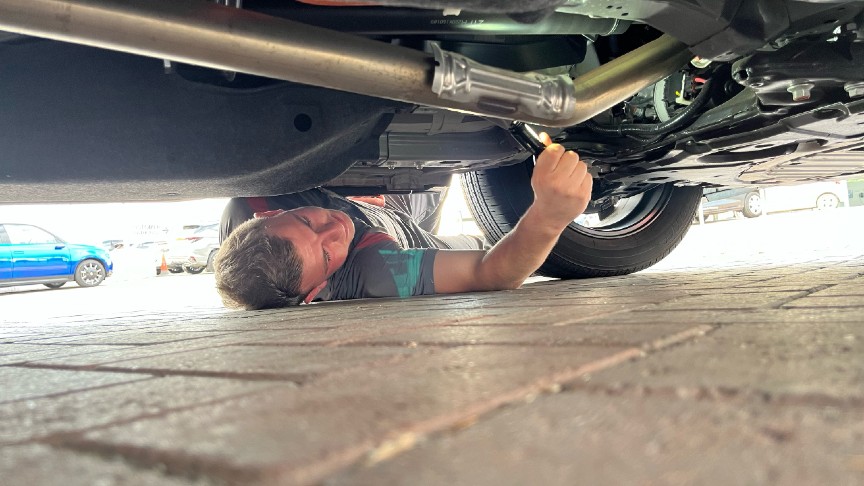
Disclaimer: JT Hughes encourages opinion in the comments section below or on their Facebook page, but please be respectful. Offensive language is not acceptable and will be deleted. JT Hughes makes no representations as to the accuracy or completeness of any information on this article or found by following any link within the article.
Catalytic converter theft in Shropshire is unfortunately on the rise. With opportunistic thieves often targeting vehicles left in car parks and driveways overnight, the theft of these valuable car parts is at an all-time high in the county. Thieves can jack your car up and take away your catalytic converter in a matter of seconds, selling the parts or scrapping valuable metals contained within the part.
While you can now take steps to ensure your catalytic converter is registered and therefore traceable, in this post we'll be sharing some tips with you to help prevent the theft of your catalytic converter entirely.
Which cars are most likely to have catalytic converter stolen?
While there are certain types of cars which contain more valuable catalytic converters and are therefore more likely to be targeted (don't worry, we'll get to those), there are also cars which logistically are easier to steal from, and cars that won't be targeted. Cars manufactured before 1974 don't have a catalytic converter, so owners of those needn't worry.
Cars that are parked in car parks overnight or on driveways or along the street are at higher risk of having their catalytic converter stolen, as they're easily accessible to thieves. Cars that sit higher off the ground are also more likely to be targeted, as it's far easier for thieves to slide underneath your vehicle and remove the part in a matter of seconds.
Ads by JT Hughes
Scroll to continue with content
What is the best protection for a catalytic converter?
Below are 10 steps you can take to prevent your catalytic converter from being stolen.
1. Parking to prevent access underneath.

To steal the parts, thieves must crawl under the vehicle and use cutting tools to separate the box from the pipes that surround it.
This means that where you park your car is important. Parking near walls or fences can be beneficial, but keep in mind not to obstruct pedestrian access, especially for wheelchair users.
2. Serial-numbered catalytic converters.
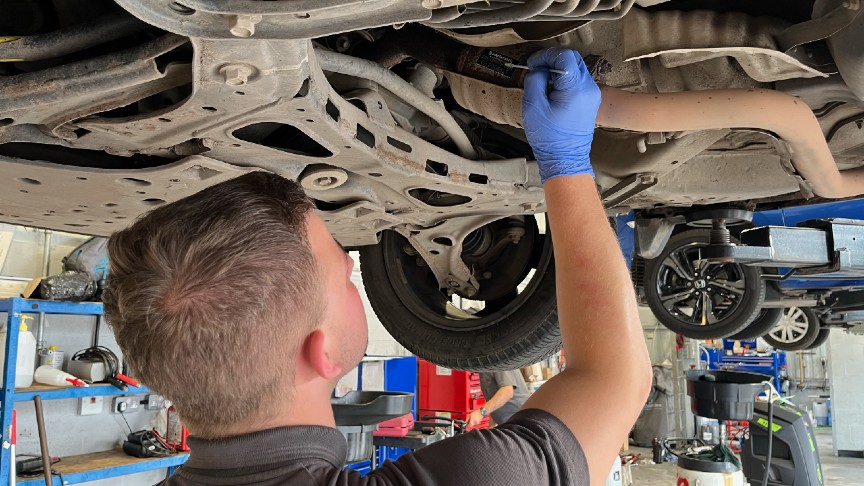
Protect it by marking it - Some garages will etch a unique serial number onto your catalytic converter to help you identify it if it is stolen.
You'll also receive a window sticker indicating that your catalytic converter has been marked, preventing criminals from targeting your vehicle.
3. Request that the bolts be welded shut.
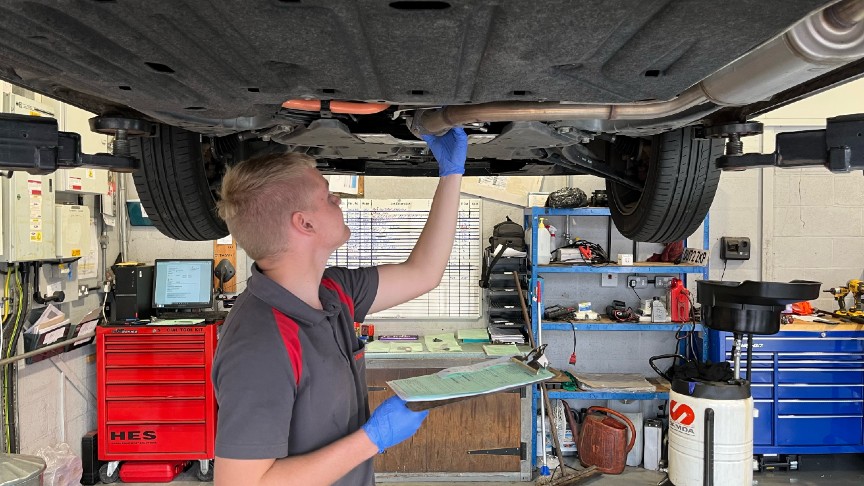
If your catalytic converter is bolted on, you can have your local garage weld the bolts to make removal more difficult.
4 Install a Catloc.
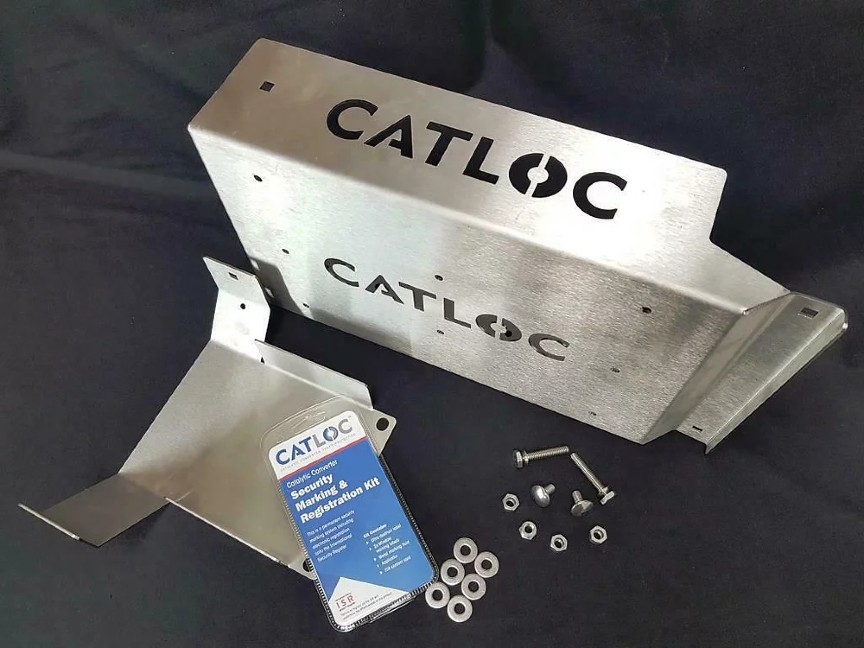
You can buy devices that lock in around the converter to make removal more difficult.
The Catloc has over 45 bespoke fitments, so it should fit a wide range of models. The Catloc costs between £200 and £250 (depending on the model).
While this is not a cheap solution, replacing a catalytic converter, including installation, can cost well over £1000. Hybrid vehicles (such as Honda , Kia and Hyundai hybrid range ), which contain a higher percentage of precious metals, are also especially vulnerable.
The Catloc does not prevent theft, but it does make removing the cat converter more difficult.
5 Install a surveillance camera.
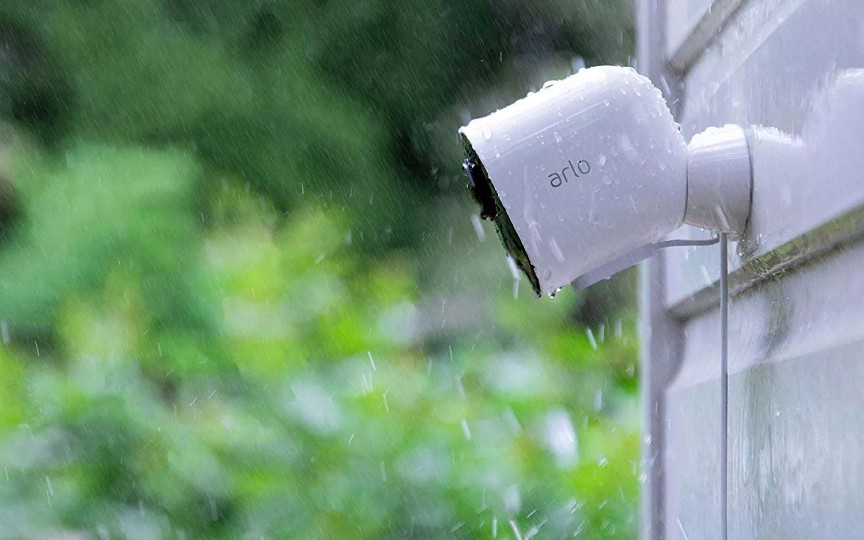
(Image credit: Arlo)
Keep an eye on your vehicle.- Installing security cameras (CCTV, Ring Doorbell, etc.) appears to be the obvious solution, and it is.
Unfortunately, if you do not park in your driveway, this will be much more difficult to implement.
There are alternative options for keeping an eye on your car when you park it, such as wildlife trail cameras, but realistically, it's best to park in areas where CCTV filming is possible anyway, such as well-lit, well-trafficked streets if you can't park off-street.
With the cost of CCTV systems falling and becoming simple to install (no specialist services required), it's never been easier to keep an eye on your vehicle. It's worth thinking about for general peace of mind, not just for catalytic converter theft.
6 Park your car in well-lit areas.

Maintain its visibility. - This is another one that is more about common sense and reducing the chances of committing a crime in general - it is not specific to catalytic converter theft.
Thieves are often opportunistic, and the equipment required to cut out a cat converter is quite heavy-duty, but once a vehicle has been targeted, thieves tend to wait for an opportunity to strike because the theft only takes a few minutes.
If you park in a well-lit area where people walk frequently, you're less likely to return to find your catalytic converter has been stolen.
7 Install an alarm(s).
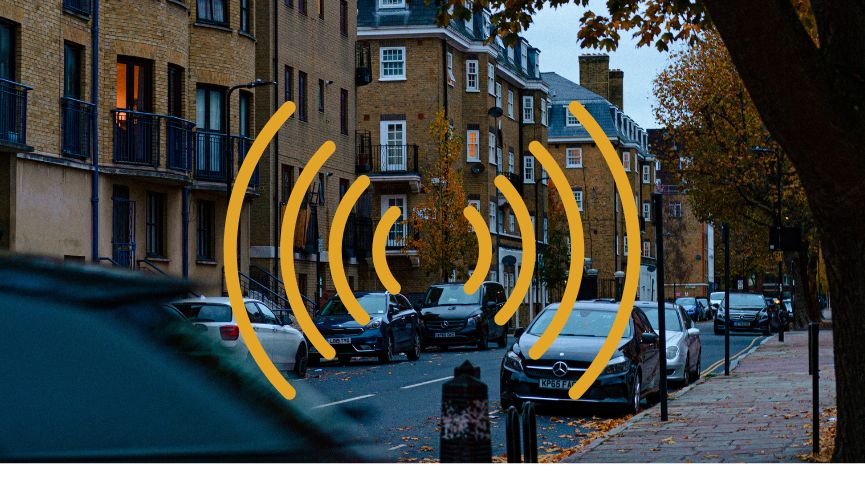
Make it loud - If your car doesn't have an alarm and you live in Shropshire or Mid-Wales, where cat converter thefts are on the rise it's time to get one. The sound of the alarm should deter any would-be thieves.
8 Clamp it with a CatClamp.
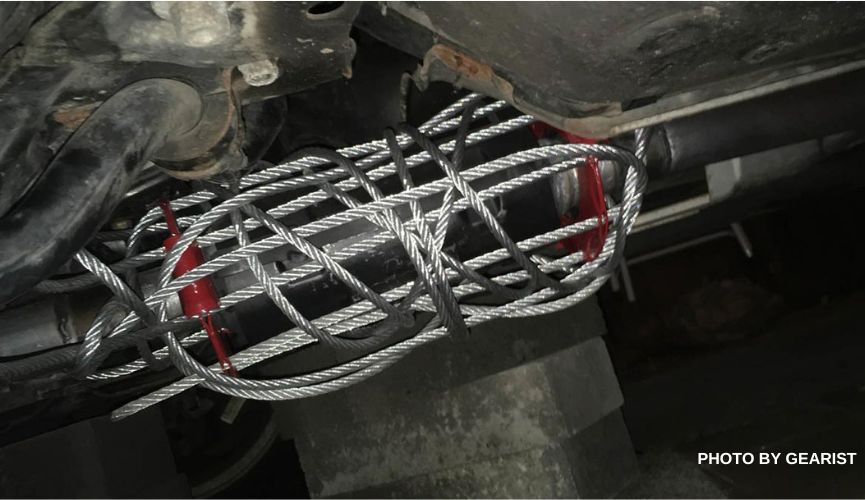
The CatClamp 'clamps' to the exhaust pipes rather than the converter, protecting converters of various sizes and shapes. This eliminates the possibility of causing damage to the converter, heat shield, or oxygen sensors.
It can be locked to the vehicle's chassis up to seven times, making it extremely difficult for a thief in a hurry to steal your catalytic converter. There are three options available, with the CatClampEconomy starting at £99 and the CatClamp MAXX3 costing £350.
9 When something is out of sight, it is out of mind.
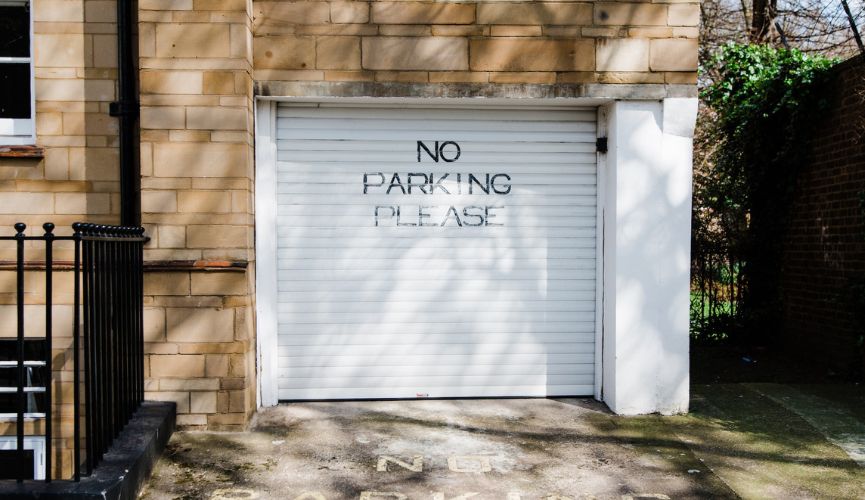
This option isn't for everyone, but if you have a garage, it makes sense to keep your car in there.
If you don't have access to a garage, try parking alongside other vehicles or in designated parking areas, such as car parks, multi-story buildings, and so on.
10 Fleet Vehicles.
The more vehicles there are, the more appealing it is to criminals. Consider parking lower vehicles nearby to obstruct access to vehicles with high ground clearance if you have a small fleet. Keep an eye out for anyone working beneath nearby cars; they could be scouting out their next target vehicle.
What vehicles have the most valuable catalytic converters?
There are a few types of vehicles that due to their size, build and engineering, require a better-quality catalytic converter - and thieves know this. These are the vehicles which often feature the most valuable catalytic converters.
Hybrid cars.
As the goal of a hybrid car is to reduce emissions, it stands to reason that the catalytic converter on these vehicles will be of higher quality, and therefore more expensive. One of the expensive metals that are used in catalytic converters is palladium, and car manufacturers will use more of this in catalytic converters when trying to reduce as many emissions as possible.
As these cars run on electricity as well as fuel, their catalytic converters will have been used less than a car that runs entirely on fuel, resulting in a better condition catalytic converter. This, unfortunately, means that hybrid cars, like the Honda CR-V and Hyundai Ioniq, are at greater risk of being targeted by catalytic converter thieves.
4X4's.
A bigger vehicle means a bigger engine, and a bigger engine means a better quality catalytic converter in order to meet emissions standards. This, combined with the build resulting in the underneath of the vehicle sitting higher above the ground than other vehicles, sadly makes bigger cars such as these a prime target for catalytic converter theft.
Luxury cars.
Many luxury car manufacturers today use high-quality catalytic converters in their luxury vehicles. Cars like Lamborghini's and Ferrari's have catalytic converters worth over £3,000, and some even have two catalytic converters thanks to their V-10 or V12 engines. Most of these vehicles are stored in locked garages, and have very low ground clearance, making them harder for thieves to pinch.
Answers to frequently asked questions about catalytic converter theft
What exactly is a catalytic converter?
For nearly 30 years, catalytic converters have been standard on car exhausts to reduce harmful emissions of hydrocarbons, carbon monoxide, and nitrogen oxides into the atmosphere.
As the name implies, the metals act as catalysts, converting harmful gases into water vapour and less harmful emissions. Prior to the introduction of catalytic converters, exhaust fumes would exit the exhaust pipe unfiltered.
Which vehicles are the most likely to have their catalytic converters stolen?
According to Admiral, there has been an increase in catalytic converter thefts recently, with thieves looking for high-quality parts from Japanese models such as the Honda Jazz. Hybrids are especially vulnerable because their catalytic converters contain a higher concentration of precious metals and are less corroded in general.
Does insurance cover stolen catalytic converters?
Yes, as long as you have a policy that covers theft. This may differ between insurers, so double-check your policy.
What should I do if my catalytic converter has been stolen?
If your catalytic converter is stolen, you must immediately contact the police and your insurer, who will advise you on what to do next. You may not be able to drive your car depending on the extent of the damage, so contact your garage as soon as you can.
Is there a catalytic converter in electric vehicles?
A catalytic converter will be installed in plug-in hybrid vehicles, but purely electric vehicles, such as the Hyundai IONIQ 5, Kia EV6, and Honda e, do not have an internal combustion engine and thus do not require an exhaust system, including a catalytic converter.
Which vehicles have the most expensive catalytic converters?
These are usually hybrids. As a result, any car that runs on either conventional power (i.e., petrol and diesel) or electric for at least part of a journey will have an expensive catalytic converter and will be appealing to thieves.
Why do criminals steal catalytic converters?
They have a ceramic honeycombed core that is coated with metals like platinum, palladium, and rhodium. These metals can be worth more than gold, and a scrap catalytic converter can be worth £500-£1000.
How long does stealing a catalytic converter take?
Stealing a catalytic converter can be done quickly if you know what you're doing. Some car thieves have been known to steal one in less than a minute. It could be gone before you know it.
Can you drive without a catalytic converter?
Driving a car without a catalytic converter is not illegal in and of itself. However, if you are stopped by the police, you may face prosecution for emitting harmful emissions from your vehicle. Your car's MOT would also fail. You also don't know what other damage the theft has caused, so it's best to have it checked out by a garage or mechanic.
So there you have it, our comprehensive guide to catalytic converters.